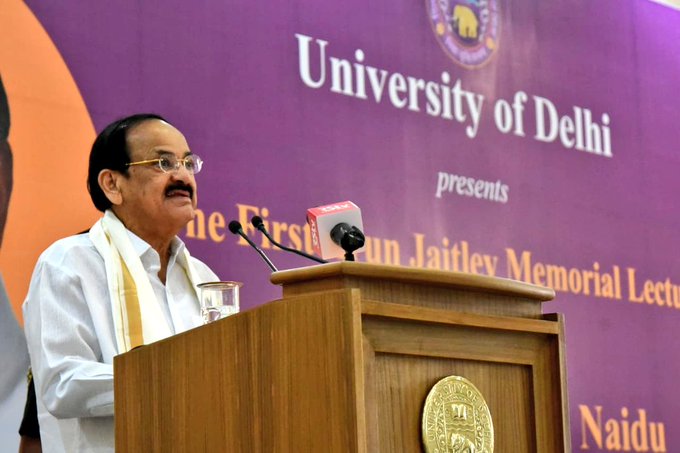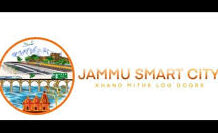New Delhi (NVI): Expressing concern over the functioning of parliamentary institutions in the country and erosion of public trust in them, the Vice President M. Venkaiah Naidu on October 29 unveiled a 15 point reform charter as the basis for a new political normal to enable effective functioning of the Parliament and State Legislatures.
Vice President dwelt at length on the present pitfalls of parliamentary democracy in the country while delivering the first ‘Arun Jaitely Memorial Lecture on Strengthening of Parliamentary Institutions in the Country’ at Delhi University, an official statement said.
While speaking at the occassion Naidu enumerated several pitfalls that are adversely impacting the legislative institutions and suggested remedial measures. He called for a new political consciousness urging all the stakeholders to review their mindset with regard to their roles and responsibilities.
He stressed that every legislative proposal shall incorporate a detailed account of social, economic, environmental and administrative impact for wider awareness and subsequent assessment of the effect of legislation on ground.
Expressing concern over poor attendance in the legislatures and the quality of debates, the Vice President urged the political parties to ensure attendance of at least 50% of their legislators all through the proceedings of the Houses by adopting a roster system.
Conceding that the present ‘First Pass The Post (FPTP)’ system of electing people’s representatives is faulty to the extent that MPs and MLAs are being elected with substantially less than 50% of voter support, Naidu, said that there is no alternative at present.
He noted that in the recent elections to the 17th Lok Sabha, a large number of Members were elected with more than 50% voter support which would further increase with the changing preference of voters based on developmental concerns.
Referring to the long held perception about the role of caste, community, region and religion in influencing the voting preferences in the country, Naidu stated that there is growing evidence to suggest the decline of such identity based voting but it needs to be completely stamped out.
“While the Indian public has been steadfast in patronising democracy since the first General Elections in 1952 with ever rising turnout, there is a need for new consciousness in the form of moving away from the remnants of identity based voting to that of development oriented exercise of voting preferences.” Naidu noted.
Naidu stated that ‘Parliamentary form of Government’ is one of the features of the ‘Basic structure of the Constitution’ and is accordingly beyond the power of Parliament to be amended as per the settled position in the matter. He said that the alternative of ‘Presidential form of Government’ for India is no option by virtue of the same.
Naidu underscored the need for the governments to be responsive to the concerns of the Opposition and the Opposition to be responsible and constructive during the debates and while criticising the government and opposing legislation.
“Frequent disruptions, Points of Order without a point, Adjournment Motions and interruptions betray political immaturity, exhibitionism, excessive fondness for the limelight and inadequate appreciation of the need to utilise the opportunity of serving the public interest. ” he added.
While Lauding the contributions of Late Shri Arun Jaitely, Naidu said; “In my view, Jaitely during his long years in public life made a unique contribution to address the imbalance in the prevailing dominant political thinking in the country which was almost instutionalised for long at the cost of other perspectives. It required the zeal, ability, virtuosity and the power of interpretation and communication of Shri Jaitely to mainstream the hitherto dormant perspective based on Indian ethos and nationalism. He was in the forefront of further elaborating the concepts of secularism and nationalism as unifying forces in the Indian context. ”
-sb











